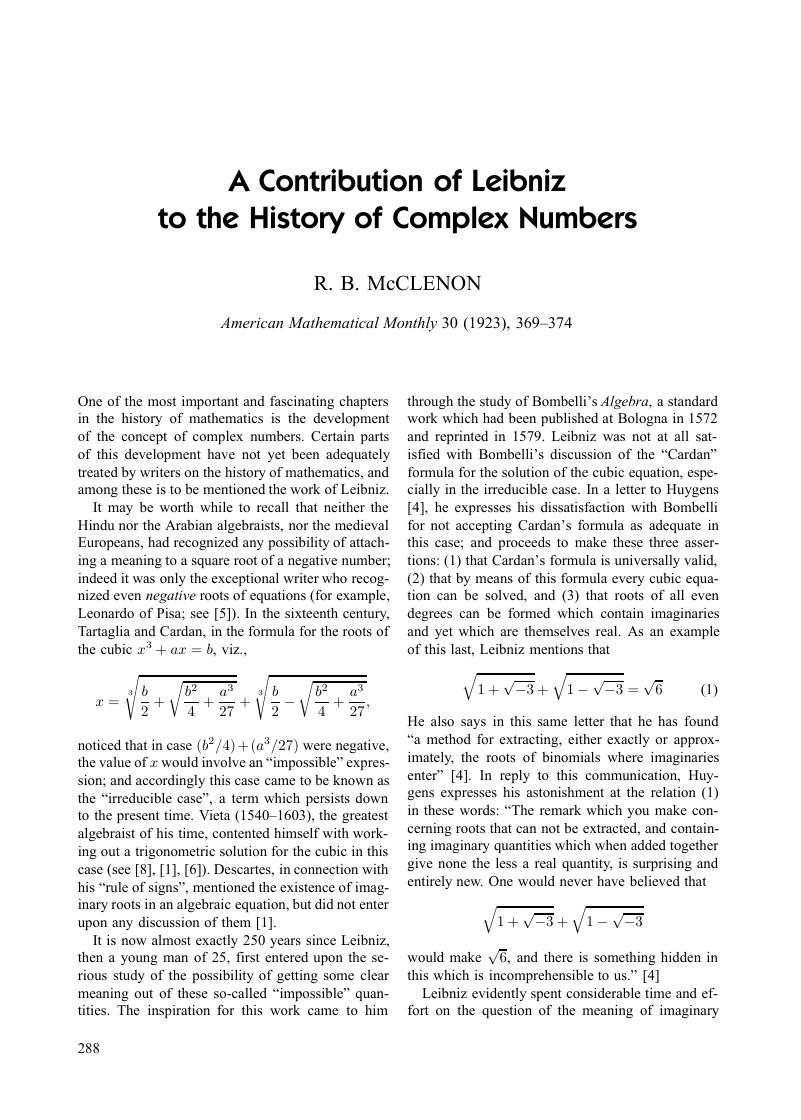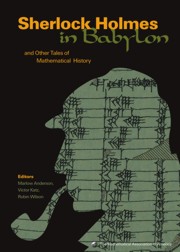Book contents
- Frontmatter
- Introduction
- Contents
- Ancient Mathematics
- Medieval and Renaissance Mathematics
- The Seventeenth Century
- Foreword
- An Application of Geography to Mathematics: History of the Integral of the Secant
- Some Historical Notes on the Cycloid
- Descartes and Problem-Solving
- René Descartes' Curve-Drawing Devices: Experiments in the Relations Between Mechanical Motion and Symbolic Language
- Certain Mathematical Achievements of James Gregory
- The Changing Concept of Change: The Derivative from Fermat to Weierstrass
- The Crooked Made Straight: Roberval and Newton on Tangents
- On the Discovery of the Logarithmic Series and Its Development in England up to Cotes
- Isaac Newton: Man, Myth, and Mathematics
- Reading the Master: Newton and the Birth of Celestial Mechanics
- Newton as an Originator of Polar Coordinates
- Newton's Method for Resolving Affected Equations
- A Contribution of Leibniz to the History of Complex Numbers
- Functions of a Curve: Leibniz's Original Notion of Functions and Its Meaning for the Parabola
- Afterword
- The Eighteenth Century
- Index
- About the Editors
A Contribution of Leibniz to the History of Complex Numbers
from The Seventeenth Century
- Frontmatter
- Introduction
- Contents
- Ancient Mathematics
- Medieval and Renaissance Mathematics
- The Seventeenth Century
- Foreword
- An Application of Geography to Mathematics: History of the Integral of the Secant
- Some Historical Notes on the Cycloid
- Descartes and Problem-Solving
- René Descartes' Curve-Drawing Devices: Experiments in the Relations Between Mechanical Motion and Symbolic Language
- Certain Mathematical Achievements of James Gregory
- The Changing Concept of Change: The Derivative from Fermat to Weierstrass
- The Crooked Made Straight: Roberval and Newton on Tangents
- On the Discovery of the Logarithmic Series and Its Development in England up to Cotes
- Isaac Newton: Man, Myth, and Mathematics
- Reading the Master: Newton and the Birth of Celestial Mechanics
- Newton as an Originator of Polar Coordinates
- Newton's Method for Resolving Affected Equations
- A Contribution of Leibniz to the History of Complex Numbers
- Functions of a Curve: Leibniz's Original Notion of Functions and Its Meaning for the Parabola
- Afterword
- The Eighteenth Century
- Index
- About the Editors
Summary

- Type
- Chapter
- Information
- Sherlock Holmes in BabylonAnd Other Tales of Mathematical History, pp. 288 - 291Publisher: Mathematical Association of AmericaPrint publication year: 2003

